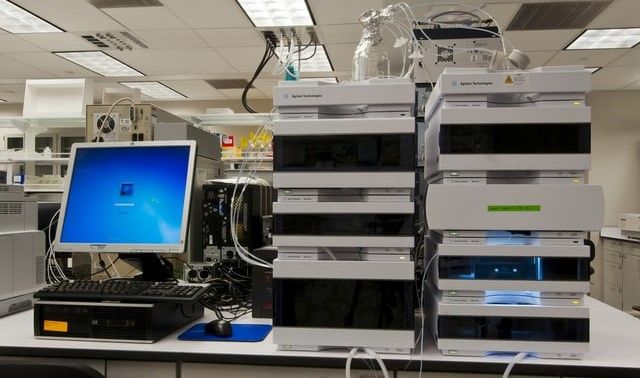Using nanomaterials as an industrial feedstock is commonly held as an example of how manufacturers should be embracing technology.
Yet beyond the applications of nanotechnology employed by NASA, the U.S. Department of Defence, and other sectors with endless R&D budgets, how are small to medium sized businesses using nanomaterials? And is it really worth the investment?

To answer this, researchers from Copenhagen Business School studied companies which had applied nanotechnology. Their aim was to find out the route they took to employ nanomaterials, gauge what success they had, and then compare the results to find an optimal approach for manufacturers to gain the benefits of nanotechnology.
Many of the cases analysed were involved in the EULASUR project - a network of South American and EU-based scientists, technologists, industrial experts, and policy makers who were promoting international collaboration in material sciences.

Construction
In the construction sector, Hyperion Catalysis Inc. were involved in developing carbon nanotubes for use in concrete and later in aeronautics. The company had some success, but frequently struggled to find business partners in the construction industry to apply any innovations it had made.
Pharmaceuticals
Many of the companies studied had made technological advances in the pharmaceutical sector, although sometimes only by accident.
For example, one Brazilian-based business made progress with nano-encapsulated materials with the objective of preventing active ingredients from oxidizing. While the original concept was devised for the cosmetic industry, the nanotechnology was eventually taken up by the chemical industry, where it was applied as an additional process control for industrial chemical reactions.
In a similar way, Argentinian researchers created a drug delivery system based on direct input from a customer. The nanotechnology involved phospho-lipid vesicles acting as vehicles for the distribution of molecules that can react with cell membranes. While the nano-product was based on a request by a pharmaceutical company, the scientific advance is now also used in specialised cosmetics.

Another Argentinian company created a similar nanotechnology based on a nanoparticle which could encapsulate cytotoxic, antibiotic, radio isotopic, and other active molecules. Despite the clear applications in the pharmaceutical industry, the company had no final end-user product itself. Instead, the business is now located upstream in the pharmaceutical value chain and only manufactures intermediate products.
Environmental
Elsewhere, a Brazilian business was successful in using nano-encapsulation technology as a means for removing contaminants. The company now commercialises treatments for drinking water as well as a process for filtering out nanoscale particles from hot gasses.
Technology
A state-run company developed infrared sensors for satellites based on a nanotechnology which was developed at a university. However, the success of the project was largely through government support for launching a national satellite and the state-funded satellite contractor firm.

Academia also created a spin-off business originally funded by the Argentine Foundation for Nanotechnology. This led to a profitable enterprise producing ultra-thin, flexible, and custom-shaped lithium batteries.
Coatings and Textiles
A further spin-off business was established from research by the National University of Litoral. The start-up being formed around the application of nano-silver compounds as an anti-bacterial material with a market in the manufacture of acrylic paints.
By combining the manufacturers knowledge of coatings, commercialisation, and after-sales services, the project sold well in hospitals and the food processing sector.
Not only did the business create a paint which eliminates 99.999% of bacteria, but it was also able to sell the nanotechnology to a company which manufactured shoe insoles which reduced foot odour. The product was also sold for use in making bandages which kill bacteria. A process which required approval from the national authority that regulates the health industry (ANMAT).

Overall, what surprised the case study researchers, was the wide variety of nanotechnology applications and how each business had arrived at its product or process in a different way.
But one of the most successful approaches to developing nanotechnologies was through direct communication between R&D specialists and a company requesting a specific function. A process by which nanomaterial experts help manufacturers implement a nanotechnology they need to meet their customers’ expectations.

One such company that provides this service is NANO CHEMI GROUP. A Prague-based business which not only offers a range of nanoproducts, but one which also supplies tailor-made nanotechnologies which can provide a product with specific properties.
For example, the company (which supports this website) is able to develop nanotechnologies which add electro-conductivity to a resin, boost strength in a polymer, or reduce application and setting times for desired industrial raw materials.

It is a service which allows manufacturers to order nanotechnologies for added mechanical strength, chemical resistance, antimicrobial, electroconductivity, electromagnetism, and UV protection properties that their customers are looking for.
It is also a business model which allows for the continued development of nanotechnologies in multiple fields. A design-to-order approach that meets customer needs at every stage of the value chain while also advancing the science of nanotechnology as a whole.
A proven route for manufacturers to reduce production costs, add unique selling points, and create better products.
If you would like to know more about developing a tailor-made nanotechnology then please visit NANO CHEMI GROUP or contact Alexandra Chepak on +420 777 996 157 or alexandra.chepak@nanochemigroup.cz
Photo credit: National Cancer Institute on Unsplash, NASA, Pexels, Engin Akyurt, Sora Shimazaki from Pexels, annawaldl from Pixabay, Tumisu, & NANO CHEMI GROUP
